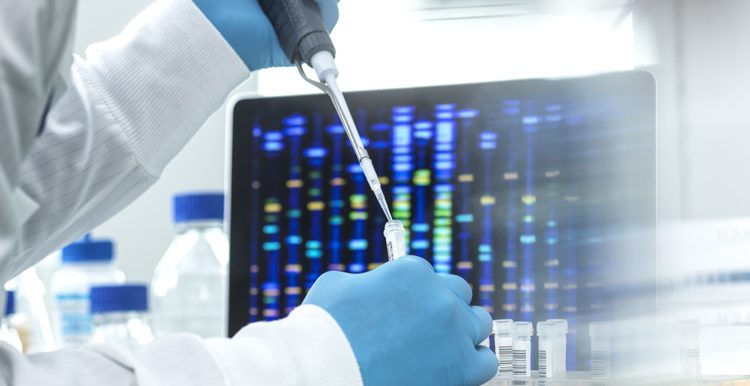Avuncular DNA Testing: A Guide To Understanding Its Benefits And Applications

Avuncular DNA testing has become a useful way of verifying familial ties when direct parentage cannot be established. By testing genetic markers, this type of genetic test aims to verify whether someone is biological uncle or aunt for the child in question. This article clarifies the importance of avuncular DNA testing in a variety of situations by examining its advantages and uses. Avuncular DNA testing, often referred to as an “uncle DNA test,” is a valuable tool for confirming biological relationships when direct parentage cannot be established.
What Is Avuncular DNA Testing?
Through avian DNA testing, a child’s DNA is compared to that of a possible biological uncle or aunt. The test establishes whether the tested person shares a sizable proportion of genetic material with the child based on whether they are the child’s parent’s sibling. When direct parentage is unknown or when other DNA testing options, such maternity or paternity tests, are not practical, this kind of test is especially helpful. Avuncular DNA testing involves a DNA test for child and aunt to determine if there is a biological relationship between them.
Benefits Of Avuncular DNA Testing
Establishing Family Relationships
DNA tests offer significant advantages over traditional forms of family tree analysis when validating familial links, providing unambiguous proof for anyone needing to establish familial ties to children for inheritance disputes or legal concerns. An avuncular DNA test can even assist children who do not know their paternal lineage due to adoption or uncertain paternity who need assistance in proving who biological relatives they have in the form of uncles and aunts are.
Legal And Inheritance Purposes
In legal situations, avian DNA testing is frequently utilized, especially in relation to inheritance disputes and estate claims. Relatives may need to provide proof of their relationship to the deceased in order to inherit money if they pass away intestate (without a will). Avuncular DNA testing can yield vital proof of the genetic tie required to support claims and guarantee equitable wealth distribution.
Genealogical Research
Avuncular DNA testing can fill in the blanks for family history and genealogy enthusiasts when other relatives’ DNA is unavailable. Rebuilding family trees and comprehending genetic ancestry are aided by it, particularly when testing is limited to aunts or uncles. For the purpose of creating precise family trees and comprehending ancestry, this information is invaluable.
Medical History And Genetic Disorders
Determining the likelihood of hereditary illnesses and disorders requires knowledge of the family medical history. Even in cases when the medical history of the child’s direct parents is unknown, avuncular DNA testing can be used to uncover inherited disorders that may run in the child’s extended family. People are better able to evaluate their health risks and choose preventative care when family relationships are verified.
Adoption And Family Reunification
Adoptive families may use Avuncular DNA testing to ascertain biological relationships among adopted children and members of their extended families, providing vital insights for adoptees seeking connections or more knowledge of their genetic heritage. Furthermore, such testing ensures the accurate sharing of genetic and medical data between adoptive families and biological ones. Avuncular DNA test at home can provide a convenient and private way to verify familial connections, particularly when direct parentage is uncertain or other DNA testing options are not practical.
Supporting Legal Actions
Avuncular DNA testing can offer further proof to back up legal claims in situations of contested parentage or custody disputes. It can be used to support or refute claims of biological ties, assisting judges in reaching well-informed conclusions about child support and custody.
The Operation Of Avuncular DNA Testing
Using a straightforward cheek swab, avuncular DNA testing entails obtaining DNA samples from the kid and the purported uncle or aunt. Genetic markers that suggest the possibility of a biological link are examined in the samples. The likelihood that the tested person is the child’s biological uncle or aunt is calculated by comparing the results. When a biological relationship is proven, the majority of avuncular DNA tests provide results with a high degree of accuracy, frequently surpassing 90% probability. Paternity USA Avuncular DNA test, often used in conjunction with services provides essential clarity in verifying familial relationships when direct parentage is uncertain or other DNA testing options are impractical
Applications And Limitations
Although avuncular DNA testing is an effective technique, it’s crucial to be aware of its limitations. It can only offer a probability, based on genetic markers, rather than definitive proof of a biological tie. Results may occasionally be less clear-cut or equivocal, particularly if the genetic markers are not sufficiently different. In order to ensure accuracy, the test also needs the participation of at least one other known related of the kid, such as a parent or sibling, for comparison. While avuncular DNA testing is a valuable tool for verifying familial relationships and supporting legal claims, it is important to consider the avuncular DNA test cost, which can vary depending on the testing provider and the complexity of the analysis.
Conclusion
Avuncular DNA testing is essential for verifying relationships within families, bolstering legal assertions, and advancing genealogical studies. It is a very useful tool for people who are trying to establish or validate biological links because of its capacity to bring clarity in complicated familial situations. Avuncular DNA testing provides a trustworthy way to comprehend and validate family relationships, regardless of the purpose—intellectual inheritance, medical history evaluation, or family reunification. As with any genetic test, professional advice is crucial to properly interpret results and deal with any potential drawbacks.












